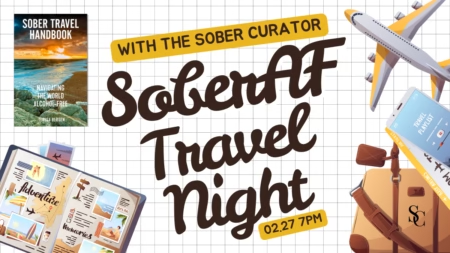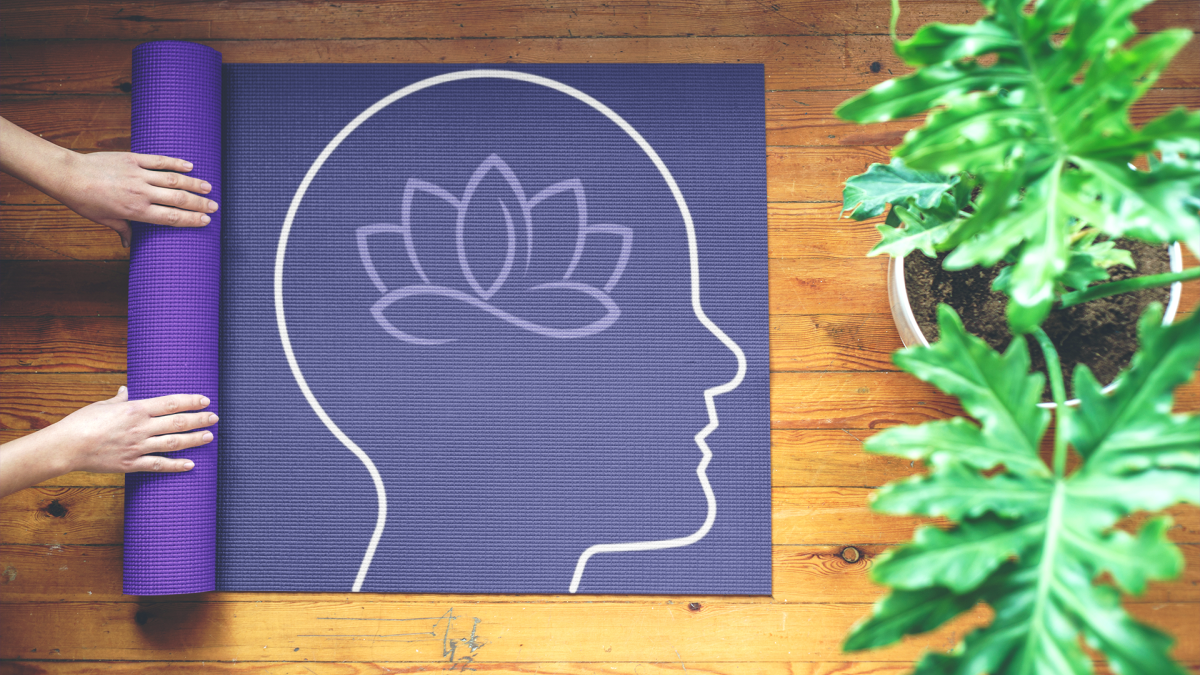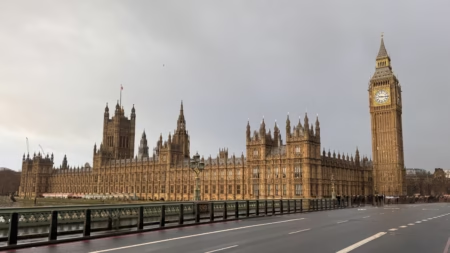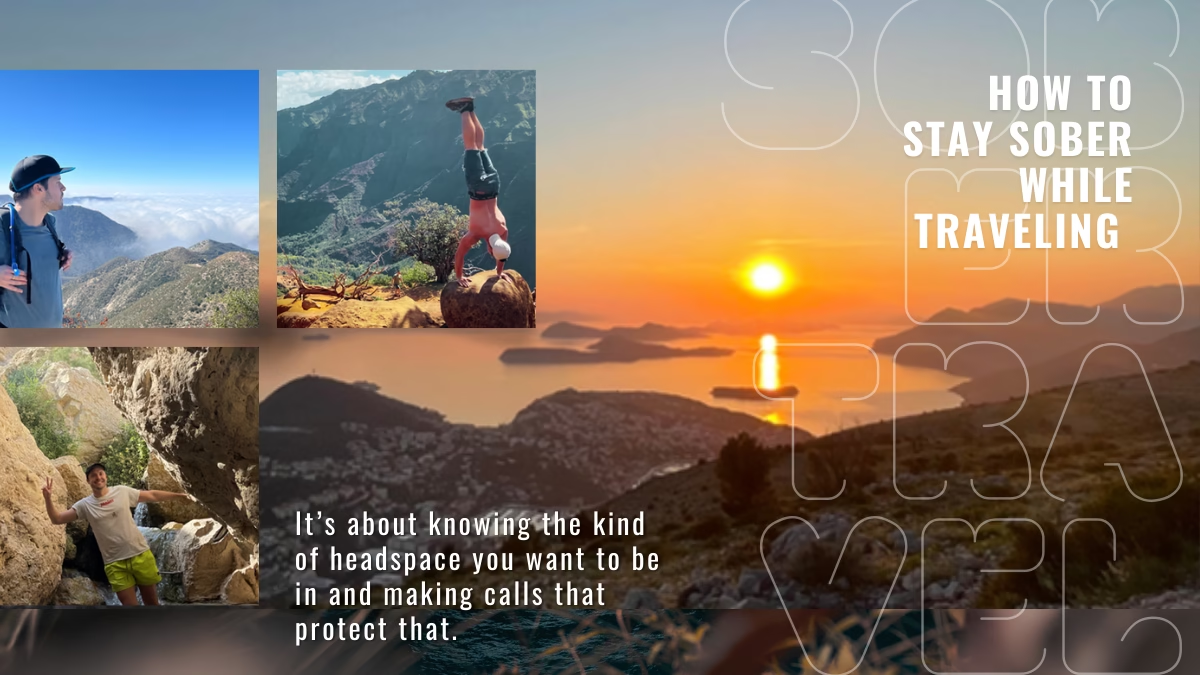
Staying sober on the road isn’t about gritting your teeth and hoping for the best. It’s not a constant stream of “no thanks” until the trip’s over. It’s about knowing the kind of headspace you want to be in and making calls that protect that.
When I quit drinking, travel made it easier. I got away from the routines and places that used to pull me back in. I wasn’t surrounded by the same people doing the same things. I was somewhere new, and I could build different habits. It was like I had a new lease without people being disappointed they weren’t in the company of “old” Ryan.
That said, travel can still throw you. No set schedule, different time zones, new crowds, a mix of energies you’re not used to. If you don’t think ahead, you’re leaving it up to chance, and chance isn’t a plan.
These are the things I leaned on in the beginning, and they still come in handy when I need a reset.
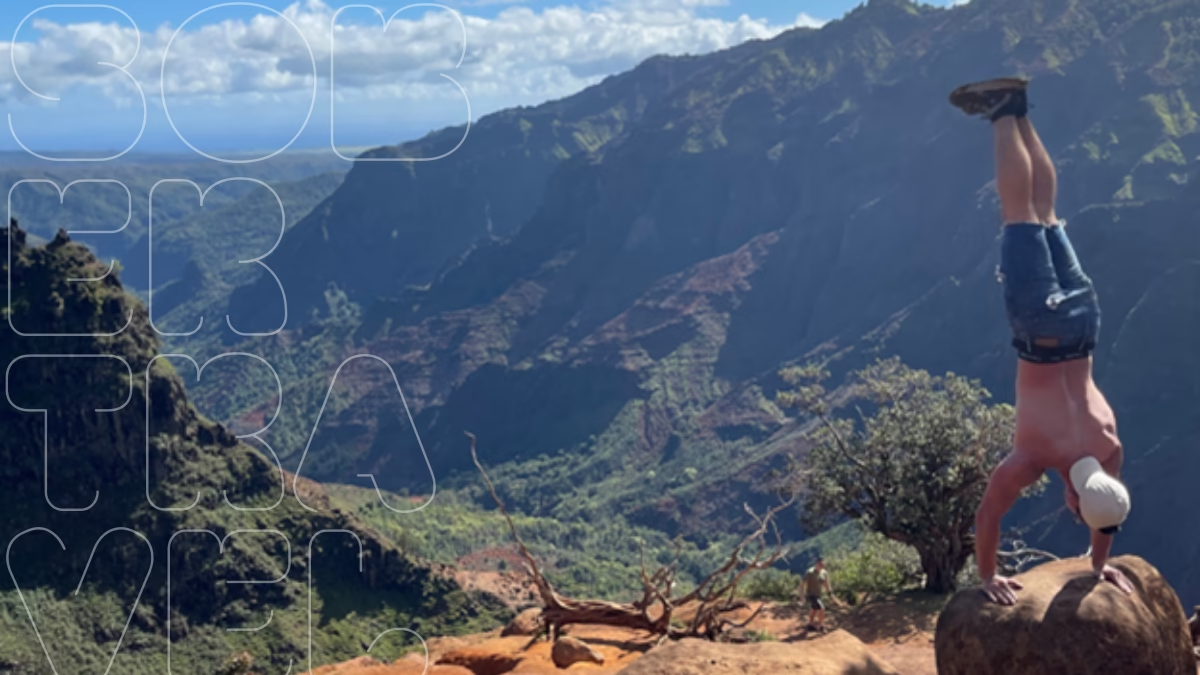
Decide Why You’re Going in the First Place
The first thing you need to do is be straight with yourself. Why are you taking this trip?
If any part of you is thinking, “I need a break from being good,” that’s worth paying attention to. I’ve watched people slide a relapse into their vacation without even calling it that. You can see it in the way they talk about the trip, the way their vibe changes before they even get on the plane.
That’s not harmless. That’s the start of making deals with yourself that you’ll regret pretty soon.
I’m not into affirmations or sticking notes on the bathroom mirror, but I do take a minute before I make plans to visit somewhere new to ask what I actually want out of it. Is it peace, clarity, excitement or a reset that I seek? Once I’m clear on that, the whole journey unfolds in a way I can control, with clarity. I pack differently, I sleep better, I show up ready.
When you’ve got that kind of grounding, you’re less likely to reach for something that takes away the reason you came.
Know Your Triggers
I know what throws me off. Do you?
Airports. Too much waiting, not enough real food. Cramped seats, loud crowds. I used to deal with it by drinking my way through the frustration. Now I plan for everything. I bring proper food, skip the bar and put on music that takes the edge off.
For you, it might be something else, like late-night social stuff or sitting alone in a hotel room. The goal isn’t to dodge those moments. It’s to know how your body reacts so you can step in early.
If you feel it in your gut, pay attention. That’s the signal. Catch it and respond before it starts running the show.
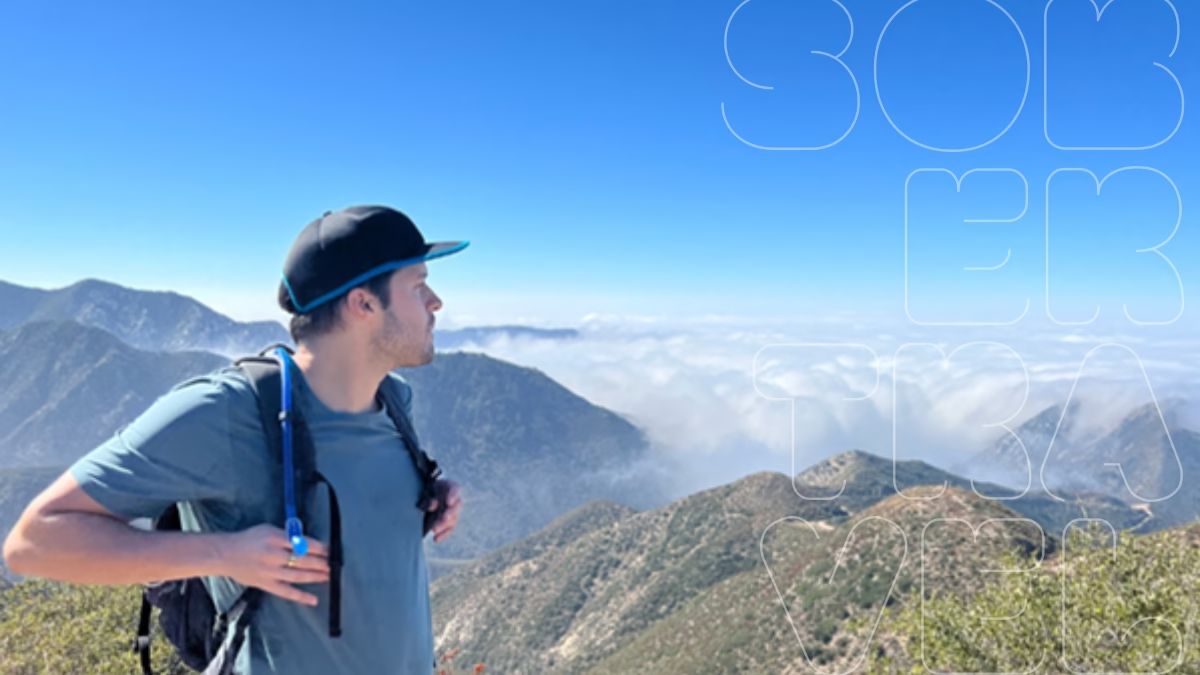
Have Sobriety Tools That Are Known to Work
Here’s what I keep on me when I gear up for my next adventure:
- Protein shake mix because starting the day fed is underrated.
- A playlist of either podcasts or music that makes me feel something.
- A few voice notes from times I felt my strongest.
- A notebook and pen. I don’t write daily, but when I do, it helps.
When you land somewhere and feel unanchored, you don’t need a debate in your head about what not to do. You need something that makes you feel solid.
That could be breathwork. A ten-minute fast walk. Counting backwards from 30 while stretching your hands.
Whatever it is, have it ready. That’s your sobriety toolkit.
Plan Your Mornings
Most people who are going through sobriety are doing their best to manage the nights. I’ve learned it’s easier to set up for the morning.
If I’ve got a sunrise hike, a breakfast I’m looking forward to or a tour I don’t want to miss, I have a built-in reason to wrap up early. Not because I’m scared of what might happen if I stay out, but because there’s something better waiting.
No way I am doing those activities with last night’s booze still coursing through my veins, a dry mouth and a banging headache. Some people think it’s skipping fun. I see it as choosing the part that matters more.
Every day, pick one thing that makes your sober morning feel like a win. That’s what keeps you going.
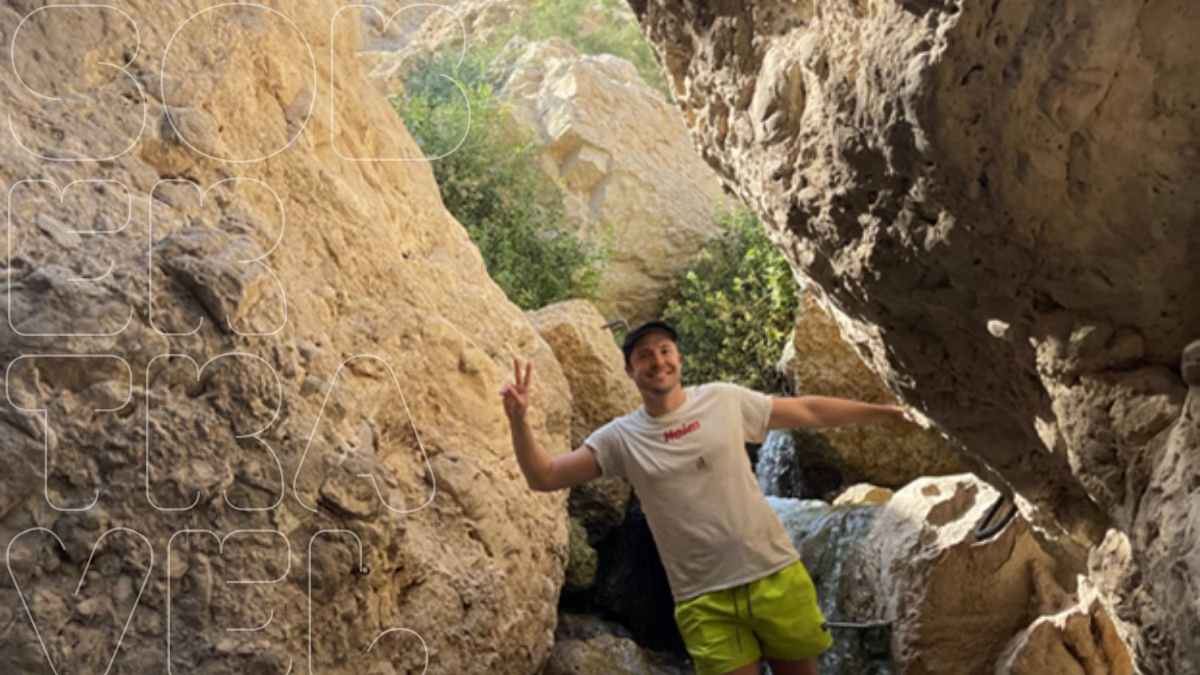
Choose Environments That Support Sobriety
Some destinations revolve around drinking. Others don’t. You can go anywhere, but you’ve got to be clear about the kind of trip you’re setting up.
I don’t pick spots because they’re “safe.” I pick them because I feel alive there. Being outdoors helps. Moving your body helps. And yeah, skipping the places where drinking fills every hour helps, too.
You don’t need a yoga retreat to make it work, but if you’re early in sobriety, maybe skip the vineyard bike tour. Don’t set yourself up in a place where the main event is drinking all day.
I’ve built some of my clearest memories in Costa Rica, Peru, South Africa and Vietnam because I picked activities that fed me instead of draining me.
You Don’t Owe Anyone Your Story
When someone hands me a drink, I usually just say, “No thanks.” Unless I really feel like going into my whole backstory, I say, “I don’t drink.” That’s it. If, for some unknown reason, they keep asking, I change the subject. If they keep pushing, I’ll leave the space.
You’re allowed to be private if you choose. For some, it can be part of the coping strategy to talk about it. For others, offering a reason is tiresome. Sobriety doesn’t have to include never-ending confessions.
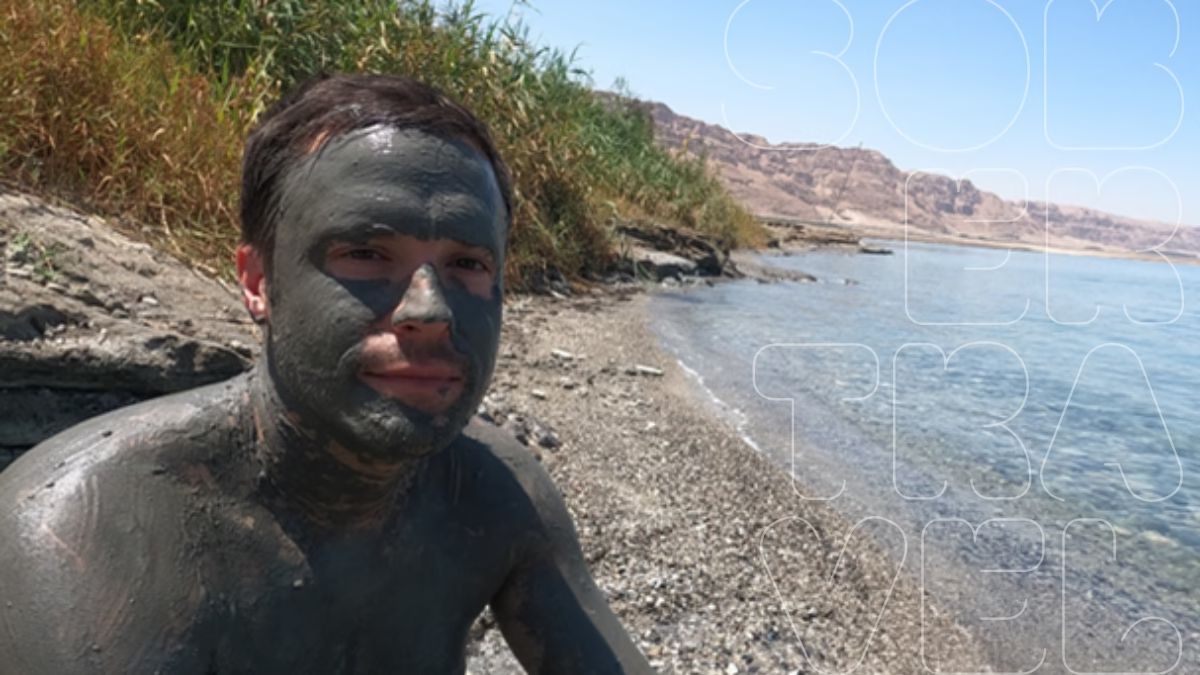
Replace the Thing You Gave Up
In my opinion, you can’t just say no to alcohol. You have to say yes to something else. Not everyone wants to be a monk, passing each day in silence and meditation.
For me, I filled the void left by drugs and alcohol with hiking, cultural experiences, tours, sunrises, diving and skiing. Replacement therapy is a proven method of success for those in recovery and those who just need something to fill a space. Ideally, that hole gets filled by things that bring joy, not sorrow or regret.
Laugh Out Loud
This one doesn’t show up in most “how to stay sober” blogs. Laugh more. Laugh often.
I’ve cracked up over passport screw-ups, flat tires, flight delays, weird rooms I booked without checking and getting completely lost because I misread a sign. I’ve also ended up with new friends after spending a day laughing about something stupid we both went through.
Laughter takes the pressure off an otherwise stressful situation. If you treat your sobriety like it’s fragile glass, you’ll make it harder than it needs to be.
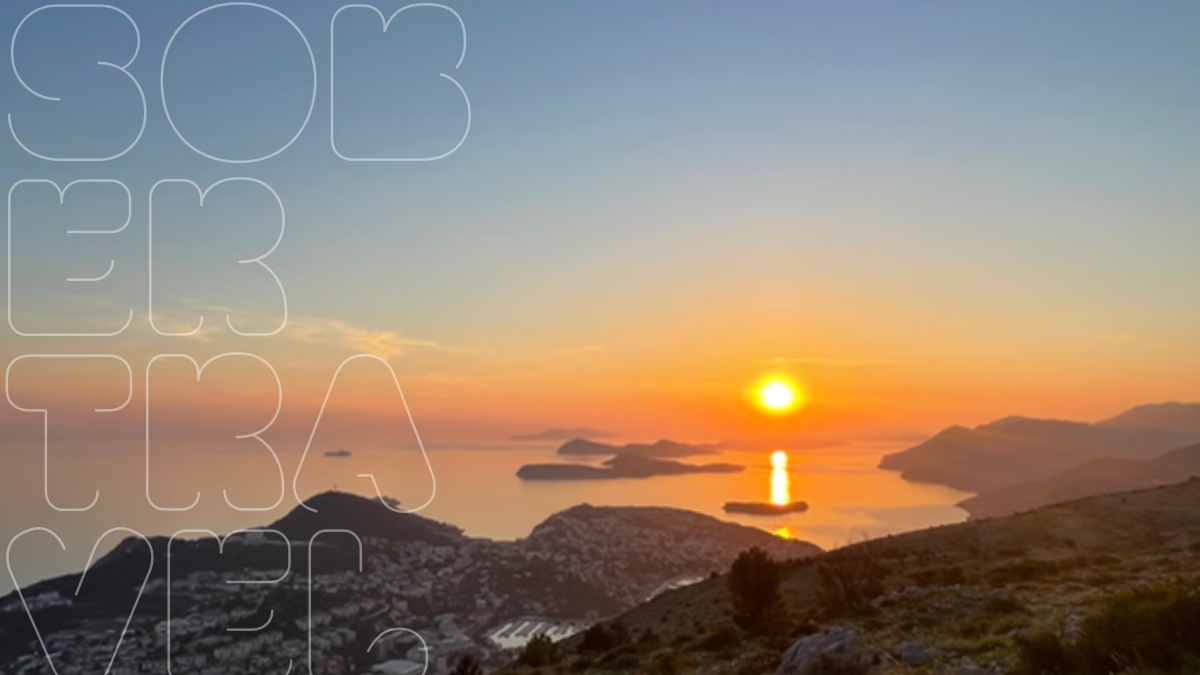
Join a Sober Adventure Travel Group
Traveling with a sober group means you don’t have to explain yourself. Everyone’s on the same path, or close to it. The conversations you have on a long hike or while sitting around after dinner can end up being what you remember most.
You can travel sober without giving anything up. You get to be there for all of it and go home with more than pictures. That’s why I started Capsule Adventures, for people who want trips that match where they are now.
When you’re ready to go somewhere that lines up with that, I’d be glad to have you along.
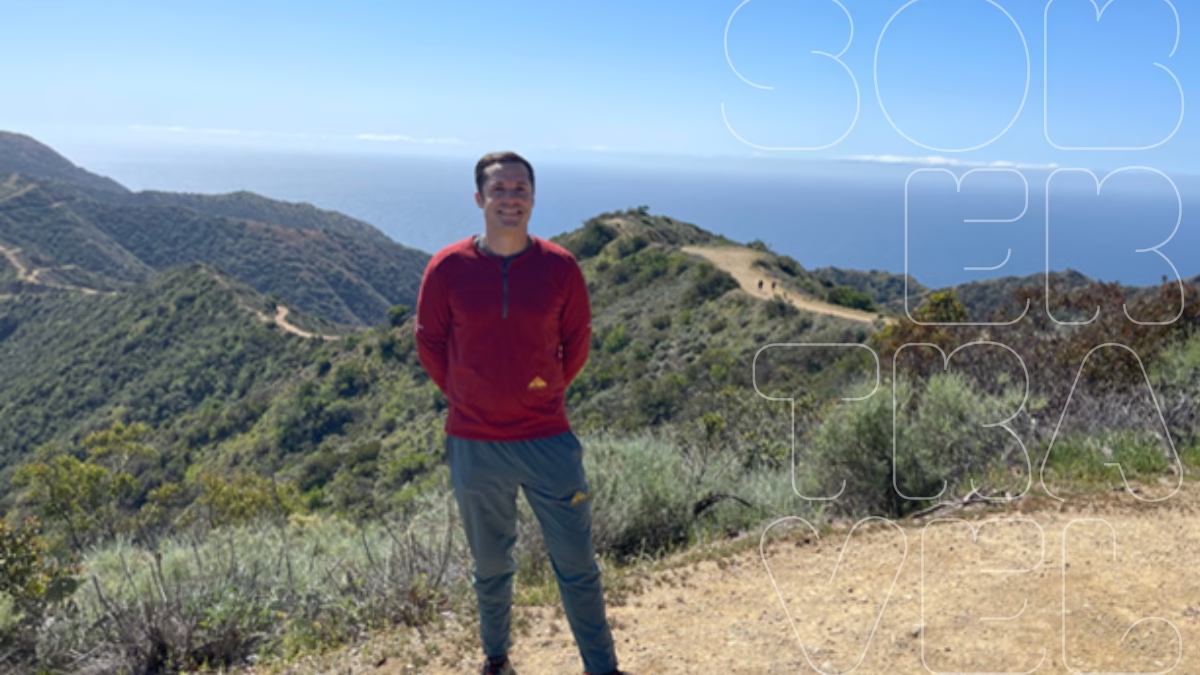
By (NEW) Sober Curator Contributor: Ryan Lee, Founder of @capsuleadventures

SOBER TRAVEL – WHAT A TRIP! is The Sober Curator’s guide to exploring the world alcohol-free. From insider travel tips and honest destination reviews to our curated Sober Retreats Calendar, we help you plan trips that are fun, fulfilling, and booze-free. Whether your jet-setting overseas or planning a weekend getaway, our stories and resources prove that sober travel is anything but boring. Looking for a sober getaway? We’ve got your back with our Sober Retreat Calendar. Need a night out on the town? Check out our Sober Events Calendar.
We also recommend soberscribing to The Sober Sip for weekly and monthly travel + events updates. Have a life-changing sober trip to share? Send your tips and photos to thesobercurator@gmail.com—we’d love to feature your journey.
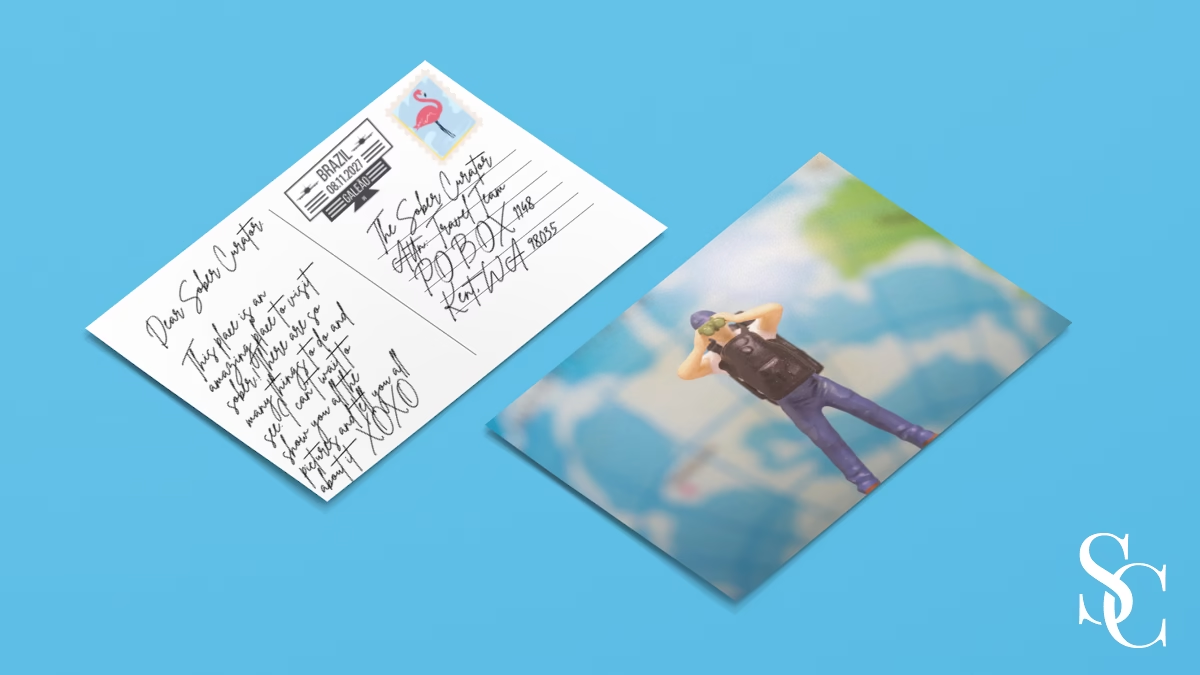
✈️ Sober Adventures Wanted! 🏞️
Have you taken a trip without the booze but with all the epic vibes? Did you hike majestic trails, sip fancy mocktails poolside, or just find a quiet corner of the world where your soul could exhale? We want the juicy details (and the jaw-dropping pics)! The Sober Curator is putting together the ultimate sober travel guide—and your story could be the highlight.
Send us a postcard!
(And by that we mean… save the stamp and shoot us an email. We’re cool like that.)
You’ve got mail from The Sober Curator

Resources Are Available
If you or someone you know is experiencing difficulties surrounding alcoholism, addiction, or mental illness, please reach out and ask for help. People everywhere can and want to help; you just have to know where to look. And continue to look until you find what works for you. Click here for a list of regional and national resources.




